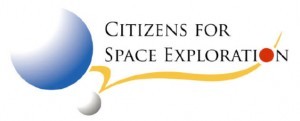Space Budgets, Policy, Missions, Benefits, International Updates
New Astronauts: NASA introduces 12 new astronauts Vice President Mike Pence joined Robert Lightfoot, NASA’s acting administrator, in Houston on Wednesday to introduce a new class of U.S. astronaut recruits. “I can’t tell you how privileged and honored I feel today to be able to congratulate the newest class of American heroes, the 2017 class of America’s astronauts,” said Pence, while visiting the Johnson Space Center and Mission Control.
Space Council: Pence reiterates plans to reestablish the National Space Council Vice President Mike Pence says the Trump Administration intends to reinstate the National Space Council, the cabinet-level space policy making body. Pence would chair the council that was first initiated in 1958 but dissolved in 1993. Pence offered the pledge while at NASA’s Johnson Space Center in Houston on Wednesday to present a new class of U.S. astronauts.
Mars Exploration: Life on Mars Six volunteers are living in isolation on Hawaii’s Mauna Loa volcano as part of a NASA funded study to prepare for the future human exploration of Mars. Learn how the Hi-SEAS 5 mission came together, who is participating and how they overcome the challenges. (See also: Illinois company among hundreds supporting NASA mission to Mars)
Asteroid Mission: ARM could live on without its arm Though cancelled in the Trump Administration’s proposed 2018 budget, key elements of NASA’s Asteroid Redirect Mission (ARM) could live on to contribute to efforts to reach Mars with human explorers. Solar Electric Propulsion and a new high power solar array design could transition to NASA’s plans for a Deep Space Gateway, a lunar-orbiting space operations base that could help to prepare astronauts for the two to three year red planet journey.
Russia’s Space Program: Putin sets task of accelerating work on super-heavy rocket Russian President Vladimir Putin has directed Roscosmos, the Russian federal space agency, to accelerate work on a super heavy lift rocket, a $23 billion initiative for deep space pursuits.
India’s Space Program: India shows off space prowess with launch of mega-rocket India successfully launched its most powerful home-produced rocket, another milestone for its indigenous space program which one day hopes to put a human into orbit.
China’s Space Program: China to conduct at least four manned spaceflight missions in five years China plans four or more human space flight missions in the near future to assemble a new space station, China’s first astronaut Yang Liwei said Tuesday. He spoke before the Global Space Exploration Conference which got under way in Beijing earlier this week.
UAE’s Plans for Exploration: The United Arab Emirates launches a plan to colonize Mars by 2117 The United Arab Emirates (UAE) is joining a global line-up of nations and companies with ambitions of settling Mars. The Emirates-envisioned City of Wisdom would become home to 600,000 people on Mars around 2117. “We see Mars 2117 as a multinational effort, which would set out to create a coalition of equals working together to fulfill a unified objective,” said Saeed Gergawi, program director of the Mars project.
Citizens for Space Exploration – a pro-space, taxpayer, grassroots advocacy group  (http://www.bayareahouston.com/content/c_s_e/c_s_e) – has traveled to Washington, D.C. the past 24 years to meet face-to-face with Members/staff of Congress to discuss the value of America’s investment in space exploration. In order to sustain that dialogue on a regular basis, Citizens distributes “Space Exploration Update” to Congressional offices on a weekly basis. The intent is to provide an easy, quick way to stay abreast of key human space exploration program and policy developments.
(http://www.bayareahouston.com/content/c_s_e/c_s_e) – has traveled to Washington, D.C. the past 24 years to meet face-to-face with Members/staff of Congress to discuss the value of America’s investment in space exploration. In order to sustain that dialogue on a regular basis, Citizens distributes “Space Exploration Update” to Congressional offices on a weekly basis. The intent is to provide an easy, quick way to stay abreast of key human space exploration program and policy developments.







